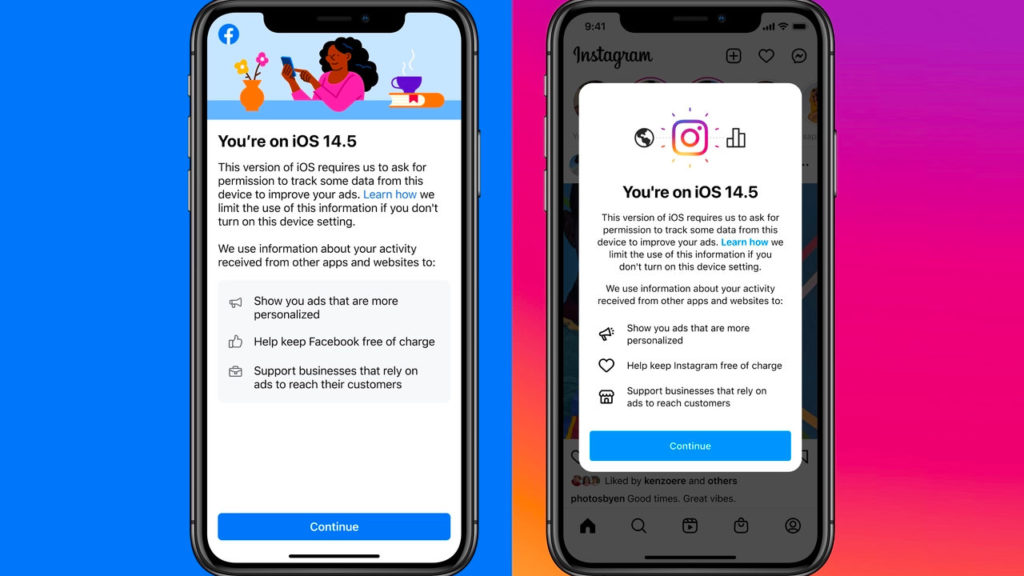Your customers spend most of their time on Facebook
With over 2.6 billion monthly active users as of the first quarter of 2020, Facebook is by far the worlds biggest social network. In the third quarter of 2012, the number of active Facebook users surpassed one billion, making it the first social network ever to hit that volume.
During the last reported quarter, the company stated that almost 3 billion people were using at least one of Facebook’s core products (Facebook, WhatsApp, Instagram, or Messenger) each month.
Number of monthly active Facebook users worldwide as of 1st quarter 2020
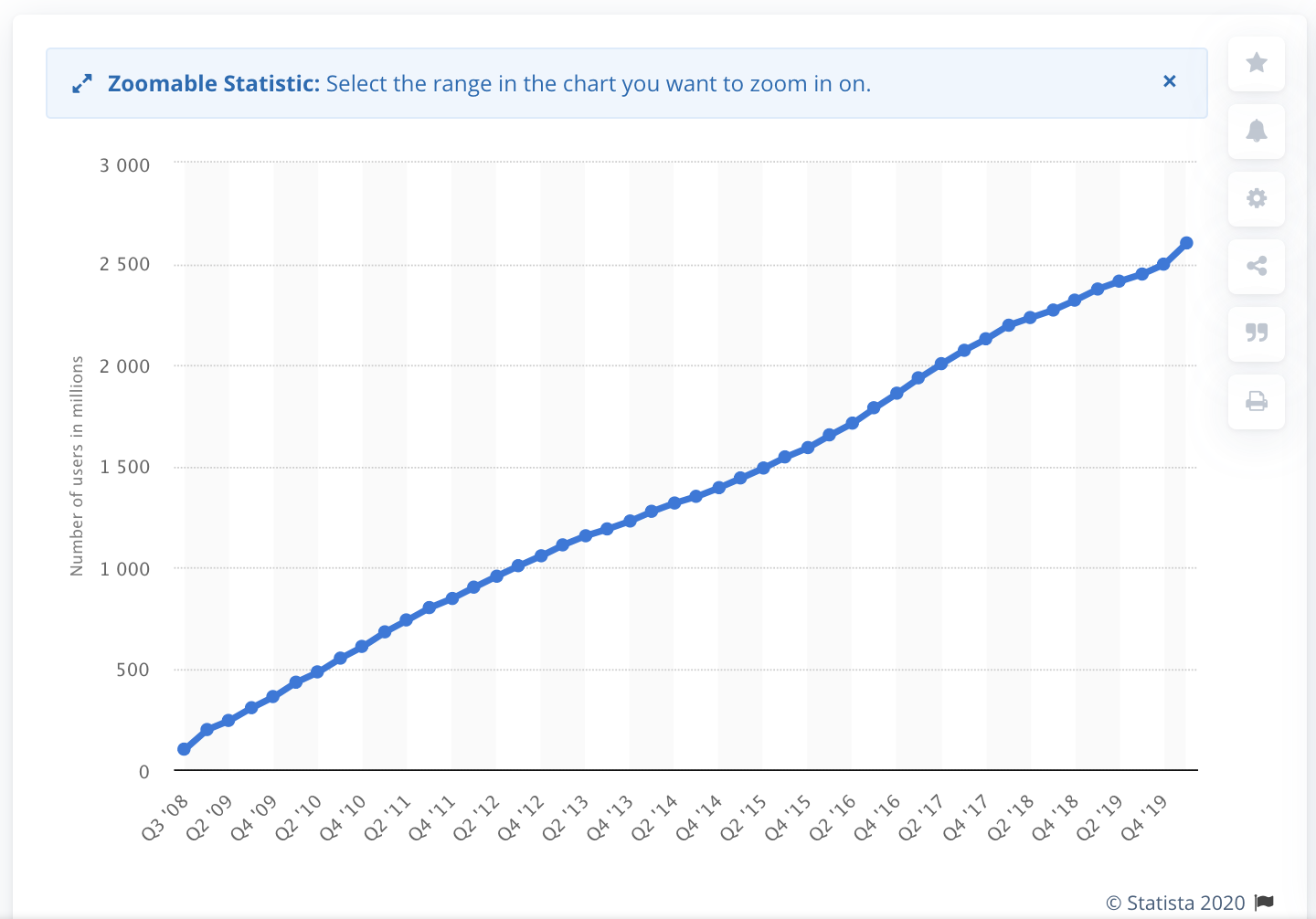
In addition to being the largest social network on the planet, it’s the most active. 1.73 billion people on average log onto Facebook daily and are considered daily active users (Facebook DAU) for March 2020. This represents an 11 percent increase in year-over-year.
Seven in 10 U.S. adults use Facebook According to Pew Research Center, 71% of U.S. adults use the social network. The only platform that has Facebook beat with this demographic is YouTube, with 74%. Less than four-in-ten U.S. adults use Instagram. Also, according to a report by eMarketer, more than half of the population of the U.S. used Facebook in 2018.
There are over 280 million Facebook users in India alone, making it the leading country in terms of Facebook audience size, followed by the US. The UK is in the top 10 with several other countries.
Leading countries based on Facebook audience size as of April 2020
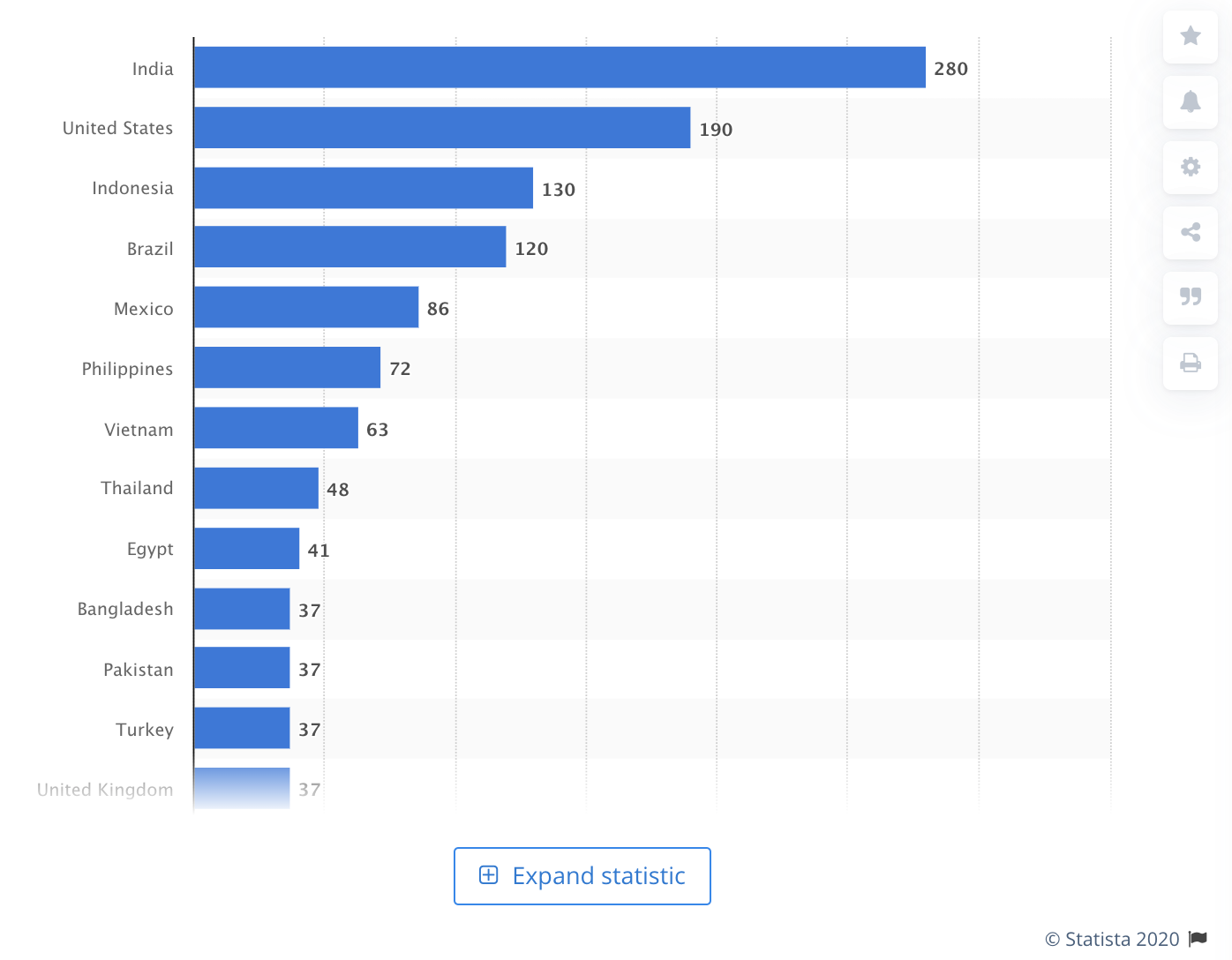
To put this into context, if India’s Facebook audience were a country then it would be ranked fourth in terms of the largest population worldwide. Apart from India, there are several other markets with more than 100 million Facebook users each: The United States, Indonesia, and Brazil with 190 million, 130 million, and 120 million Facebook users respectively.
Users 65 years and older are the fastest-growing group on Facebook
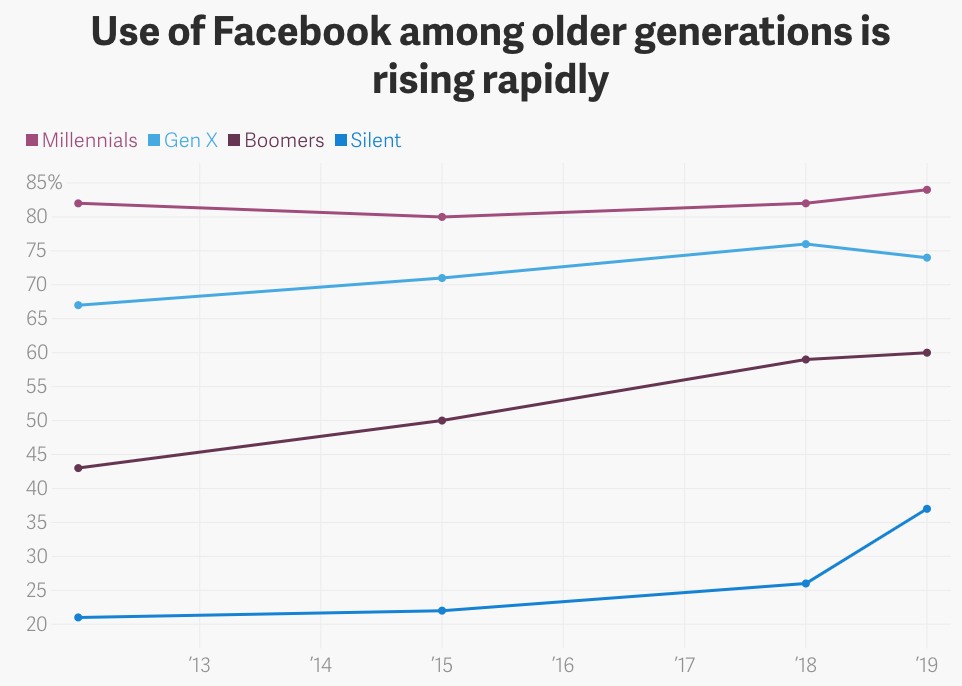
It’s not all teens on Facebook anymore, In 2019, the most significant change in Facebook user demographics was among users born in 1945 or earlier, aka the “Silent” generation. This age group had grown on the platform from 26% in 2018 to nearly 40% in 2019. Interestingly, Millennials and Boomers only increased by a maximum of 2% and Gen Xers even reduced their Facebook use.
Think about this: Most smartphones and tablets are preloaded with a Facebook app or at least have features that allow for Facebook sharing. Facebook grew at a staggering rate because it fit the needs of both consumers and businesses. However, early in 2018, Facebook changed its algorithm (an algorithm determines the order in which you see items in your Timeline) in response to a major controversy involving the use of automated bots that didn’t represent content from actual users.
All Facebook users have a Facebook profile, which includes a main image, or avatar; a Timeline listing their latest activities and comments from friends; and a sidebar that includes links for photos, personal information, and other apps.
Facebook offers marketers several unique ways to interact with customers and
prospects, including the following:
Facebook Pages, Groups, and Events
These tools are free for any business and have the very same social features (including News Feeds; comments; and the capability to share links, photos, videos, and updates) that more than 2 billion people use to connect with their friends on Facebook. In other words, Facebook allows businesses to connect with customers in the same way that these customers connect with their friends.
This business-is-personal paradigm has helped Facebook transform the way companies market themselves.
Facebook Social Plugins for websites
Facebook offers several free plug-ins for websites that allow your website visitors to share your content with their Facebook friends. The Comments plug-in, for example, lets people comment on content on your site by using their Facebook profiles. When they do so, a
story is generated in their friends’ News Feeds, exposing their friends to your website content.
Facebook Ads
Facebook Ads, which can be purchased on a cost-per-click (CPC) or cost-per-impression (CPM) basis, are popular because they enable marketers to reach as narrow or as wide an audience as desired, often at a fraction of the cost of other online media outlets, such as Google Ads.
And because Facebook members voluntarily provide information about their personal interests and relationships, Facebook has a wealth of information about its members that advertisers can easily tap. Additionally, Facebook partners with a few third-party consumer data companies such as Acxiom and DLX to provide information about purchasing behaviour and income.
The new Facebook marketing paradigm rewrote all the rules. As marketers scramble
to understand how best to leverage this powerful communications channel,
those who don’t jump onboard risk being left behind at the starting gates.
Facebook Ads are one of the most targeted forms of advertising
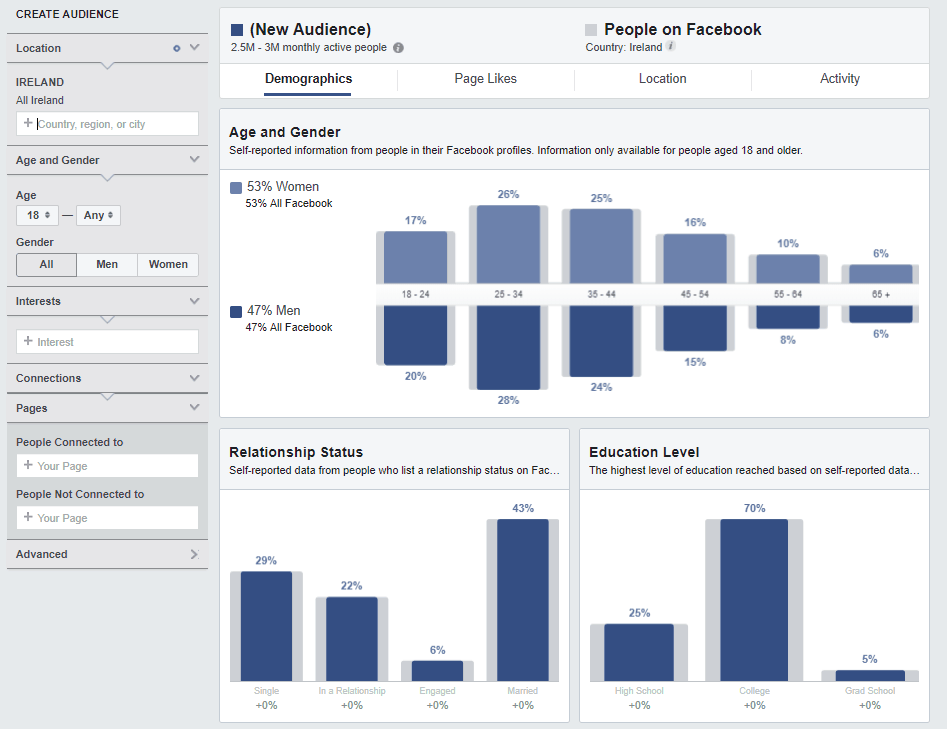
A major benefit of Facebook advertising is its ability to reach your exact audience. Facebook is the most targeted form of advertising. You can advertise to people by age, interests, behaviour, and location. If you really know your customers, you can use Facebook advertising to engage them.
Facebook Advertising is the cheapest form of advertising
Another major benefit of Facebook advertising is that it is one of the cheapest forms of advertising. You can literally spend £5 and reach 1,000 people. It does not make sense to spend more on traditional channels like radio or television commercials any more. Billboards and other traditional media are a waste of time, money and often completely unmeasurable.
Facebook advertising is fast
Facebook advertising is fast. It drives immediate results. You can start reaching thousands of people today. So if you are looking for a fast way to drive traffic and conversions, Facebook advertising is the best solution.
Facebook advertising increases revenue, sales, and leads
Facebook advertising is not a myth. It actually drives revenue, sales, and leads. Below is a screenshot of a business that spent $519.87 in Facebook ads and generated $1,557.50 in sales. On average, they spent $3.42 per conversion.

Sounds good right? unfortunately, it’s is not as easy as it seems to increase sales through Facebook advertising. It takes time and experience. You could easily waste thousands of dollars and not see any return on your investment, especially if you don’t know what you are doing.
Because of this, we strongly recommend investing in a PPC or social media management service to take care of your ads. It’s best to have a professional Facebook advertising specialist. For professional management normally ranges from $800- month. Therefore, it is more cost-effective to hire a professional agency than to hire an employee.
Facebook advertising is most cost-effective advertising investment you can make
Facebook is the most cost-effective advertising investment any business can make. The benefits of Facebook advertising are endless. You can double, triple, or quadruple your business growth with Facebook advertising. It is cheaper than almost every alternative source of advertising. The targeting options are more precise than the rest. You can target new prospects, previous customers, website visitors, and specific demographics. You can increase your touchpoints with your audience, ramp up awareness, and attribute to conversions in the future.
If you believe in the benefits of Facebook advertising, then start investing in a professional Facebook advertising campaign today. Schedule a call below to discuss your advertising needs.

